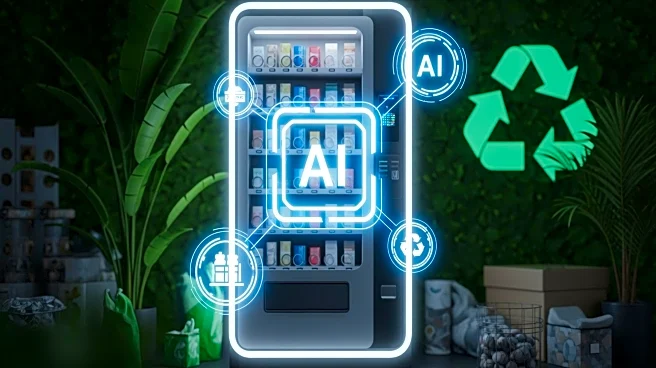What's Happening?
The vending industry is undergoing a significant transformation as it integrates artificial intelligence and automation into its operations. In a recent episode of The Automation and Self-Service Podcast,
Sandra Carpenter, editor of Vending Times, and Dale Laszig, a payments industry journalist, discussed the evolution of vending machines from traditional analog devices to intelligent, always-connected systems. This shift is characterized by the adoption of AI-powered personalization, smarter inventory management, and the expansion of unattended retail spaces in coworking environments and residential buildings. The conversation highlighted the balance between innovation and maintaining the nostalgic charm of vending machines, as operators strive to meet modern consumer expectations.
Why It's Important?
The integration of AI and automation in the vending industry represents a broader trend towards digital transformation in retail. This evolution is crucial for operators seeking to enhance customer experience, improve operational efficiency, and expand product offerings. The use of AI allows for personalized recommendations and efficient inventory management, which can lead to increased sales and customer satisfaction. Additionally, the focus on sustainability and machine design aligns with growing consumer demand for eco-friendly practices. As the industry adapts to these changes, stakeholders including technology providers and vending operators stand to benefit from new business opportunities and improved market competitiveness.
What's Next?
The vending industry is expected to continue its trajectory towards greater automation and digital integration. Future developments may include further expansion of product categories and the incorporation of sustainable practices in machine design. Operators and technology providers will likely explore new markets and applications for unattended retail, potentially leading to increased presence in diverse environments such as office buildings and residential complexes. As these changes unfold, industry stakeholders will need to navigate challenges related to accessibility and innovation while maintaining the core appeal of vending machines.
Beyond the Headlines
The shift towards AI and automation in vending raises important ethical and cultural considerations. As machines become more intelligent, issues related to data privacy and consumer trust may emerge. Additionally, the cultural significance of vending machines as symbols of convenience and nostalgia could be impacted by the move towards high-tech solutions. These factors will require careful consideration by industry leaders as they shape the future of vending.









